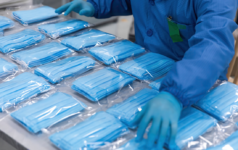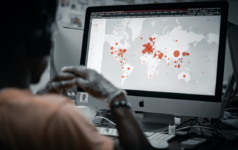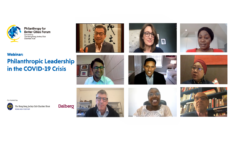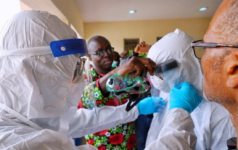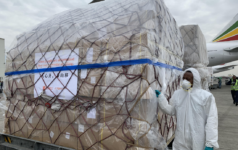Developing and scaling Safe Hands Kenya, a mission-driven alliance of Kenyan organizations to serve as a first line of defense against COVID-19.
As COVID-19 tears through the developing world, it leaves hundreds of millions of people at risk. In such contexts, where low-income families often live in dense informal settlements, practices like social distancing are simply not possible. Working from home is typically not an option as informal employment is more commonplace, and most make a precarious living. As such, people are forced to venture out to try and make some daily income. In this context, any lockdown tactics create risk of social unrest and violent police enforcement.1
Combatting an Invisible Threat
A new model must be designed in order to support and protect communities that can least afford to sustain the impact of a pandemic on their lives and livelihoods. Safe Hands Kenya (SHK) aims to provide that new model in a country where only 550 intensive-care-unit beds exist for 50 million people, and where over 90% of people in most counties lack proper hand-washing facilities.
Safe Hands Kenya elevates the most pragmatic, scalable solution to limit exposure to COVID-19 in developing country contexts: rapid mass sanitation.
The most practical tools for slowing spread in Kenya, and Africa more broadly, focus on driving behaviour change, providing masks, and providing hygiene and sanitation at scale—particularly in high-risk public space “hot spots.” However, many vulnerable communities lack both the practice and the financial means for such preventive measures—particularly not for a crisis that may last many months or years. Therein lies both the challenge and the catalyst for Safe Hands Kenya.
An Alliance of Many
Rather than bringing external capabilities to Kenya, Dalberg quickly realized the need to rapidly pivot local knowledge, talent, and idled capacity towards tackling COVID-19.
The SHK initiative began as an alliance of nearly three dozen Kenyan companies and social enterprises committed to deploying their resources to tackle this problem at scale. Dalberg’s Nairobi team served as the operating basecamp, while Dalberg Catalyst, a U.S. non-profit under the Dalberg Group umbrella, served as the fiscal sponsor for Safe Hands Kenya.
Together, the companies used agile methods to design data-driven interventions, including a geospatial supply and demand allocation map that bypasses traditional supply chain flows for quick crisis mitigation.
They covered every part of the value chain—from optimizing idle manufacturing, to providing youth employment opportunities, to consumer education—and each company agreed to forgo their profits to ensure vulnerable Kenyans have access to sanitation products at no cost. This prioritizes last mile saturation for under-served communities and develops an evolving bundle of complementary and reinforcing interventions.
Targeted, large-scale distribution was only half the challenge—it’s vital that people understand why and how to use the products effectively through consumer awareness. Safe Hands Kenya launched a massive consumer education campaign to drive adoption and maximize public health benefits.
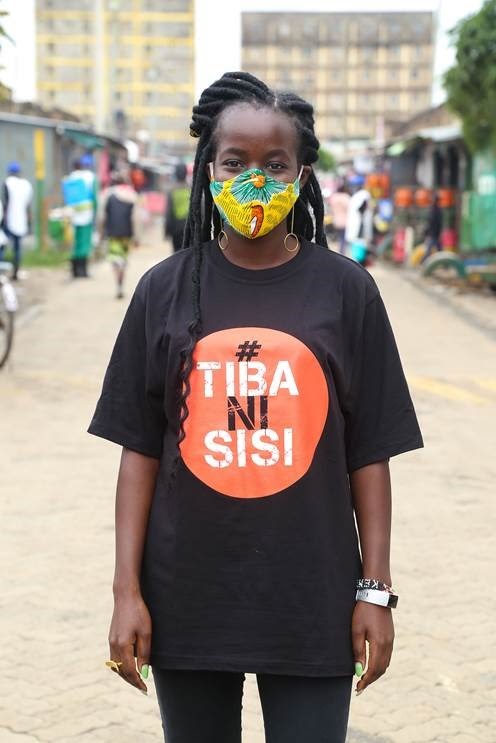

Branded #TibaNiSisi (“We are the Cure” in Swahili), the campaign lived across social media, print, TV and online publications, showing people how to stay safe, and providing practical guidance on hygiene and sanitation. It was designed with users in mind and focused on building motivation and confidence in people’s agency—their ability to take action to protect themselves and their loved ones. #TibaNiSisi speaks directly to people, learning from feedback and data from distribution trials to ensure the messaging stays relevant and impactful.
Impact at Scale
SHK showcases the dynamism, responsiveness, and entrepreneurship of Kenya’s private sector. Over 1.25 million people were reached during the first two months of the pandemic in Nairobi—with 2 million more people on track to be reached soon after.
SHK’s focus on optimizing idled manufacturing capacity resulted in numerous locally produced resources—including making and distributing more than 87 tons of soap, setting up 1,500 locally manufactured handwashing stations, and producing 500,000 masks locally per week. What’s more, production numbers are expected to increase significantly in the coming months.
“The economic impact that Safe Hands Kenya can have is just as important as the health impact during this time of crisis for so many,” noted Safe Hands Kenya CEO, Andrew Waititu. What’s more, “the actions up and down the Safe Hands Kenya’s supply chain are spurring economic activity and acting as a stimulus for Kenyan families working within local manufacturing and supply chains.”
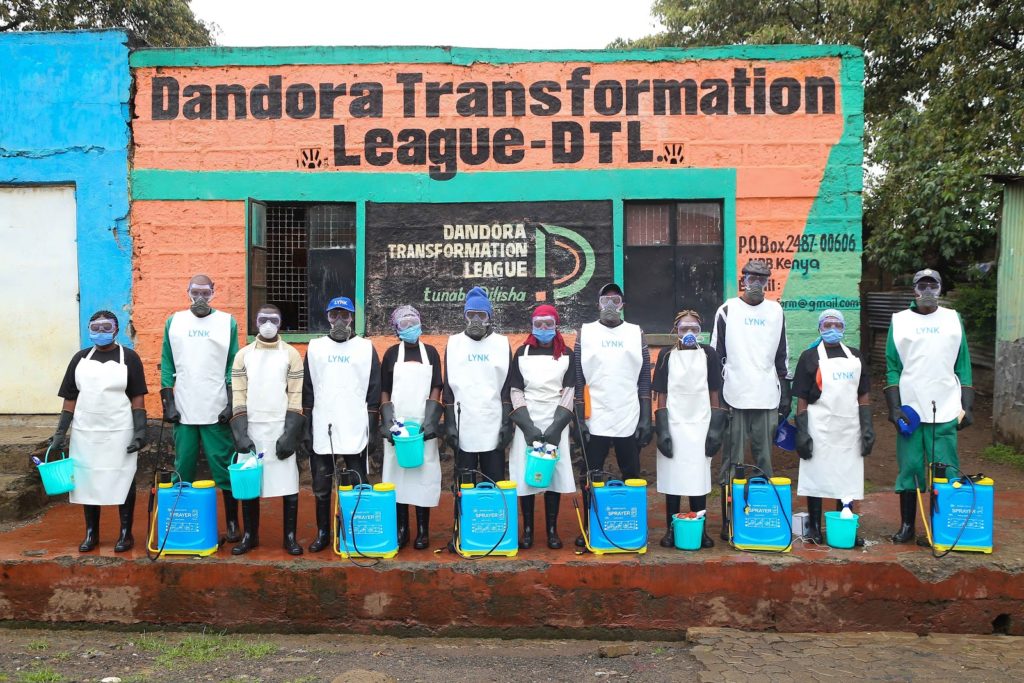
SHK is also inspiring action across the continent with the scalable nature of its model. Tanzania’s private sector has replicated this work through its Mikono Safi Na Salama initiative (“Clean and Safe Hands” in Swahili), and other countries are following suit, as evidenced by an emerging coalition anchored in Ethiopia’s manufacturing sector.
In Ethiopia, Dalberg and Roha Group have organized private sector capacity and competencies, along with NGOs, to add measurable impact to Ethiopia’s national response to Covid-19 through its Safe Hands Ethiopia project. The Ethiopian government also played an important role by providing assistance in removing critical bottlenecks and regulatory hurdles as well as leading distribution to communities. As the Ethiopia program continues to scale, this public-private partnership is expected to lead to a nation-wide program with the inclusion of other diverse partners, and the goal of reaching 1.2 million people across Addis Ababa with critical, life-saving products.
Safe Hands Kenya shows how the Kenyan private sector can innovate quickly in times of crisis, design unique solutions that are tailored to the local context—yet scalable to other parts of the world—and utilize home-grown talent and resources to meet vulnerable Kenyans where they are.
1. https://www.globalcitizen.org/en/content/covid-19-lockdowns-increasing-inequality-in-africa/

